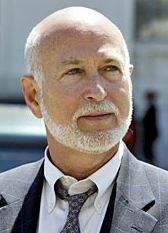Quan, Santana Accused of Undermining of Intake of Complaints Against OPD Officers
Aug 31, 2013
Posted in Police-Public Safety, Responsive Government
By Ken A. Epstein
Many supporters of increased police accountability to the community consider that it is a small step forward to take intake of complaints against police away from the police department and put it in the hands of neutral civilians.
But though the reform was passed two years ago, it has still not been implemented and is the center of ongoing disputes.
Some of those backing increased police accountability now are accusing City Administrator Deanna Santana and Mayor Jean Quan of thwarting the City Council’s decision to remove intake of complaints against officer from the Internal Affairs Division of the Oakland Police Department.
The agreement was for Santana to hire eight intake technicians by the middle of October. As approved by the City Council and asked for by community groups, these new intake workers are to be trained and placed at the offices of the Civilian Police Review Board (CPRB), not within Internal Affairs.

The intent of the council decision was to “consolidate” the intake function, which up to now has taken place both in Internal Affairs and the CPRB.
However, the job announcement released by Santana’s office says the positions will be located “within the Internal Affairs Division of the Oakland Police Department.” And operate “under general supervision in the Oakland Police Department (OPD).”
However, the council had allocated funding for the workers “in the City Administrator’s budget, to be utilized to expand the CPRB – not to hire intake personnel in Internal Affairs,” said Rashidah Grinage, executive director of PUEBLO, which has long worked with other community groups to increase police accountability.
“She changed that allocation from her budget to the police budget. She has no authority to do that – plain and simple,” said Grinage, who accused Santana of usurping the council’s powers that are determined by the City Charter.
“At what point do we say the City Council is irrelevant and the city administration will do whatever it wants?”
Santana and Mayor Quan, who is Santana’s boss, have to share responsibility for the decision on intake workers, Grinage said. “This is a question of undermining democracy in Oakland. We learned that this administration feels impunity to ignore public policy legislated by elected representatives.”
The council’s unanimous decision two years ago to move the intake function to the CPRB came after members of the public said they have had little confidence in going to the police department to file a complaint about the police.
There were also persistent complaints that Internal Affairs intake workers actively discouraged and sometimes intimidated those who tried to file complaints.
Santana sent an email Tuesday to Grinage in response to her concerns. She said the intake workers would be placed temporarily in Internal Affairs for the purpose of training.

“The Intake Technicians will first learn the process and methods of the current staff in the Intake Unit of Internal Affairs. The city must ensure that the new staff is properly trained and sufficiently performing the tasks of intake before those positions can be transferred to the CPRB,” Santana said in the email.
Santana also said her “action was consistent with input and comments made by the compliance director who expressed concern and/or questions about the transfer to CPRB.”
In response, Grinage said that if Santana believes the policy adopted by the council needed to be modified, she needs to present that as a proposal to the council, not unilaterally change policies at her own discretion.
Santana is violating the City Charter, said Grinage, because the charter says her job is “to execute and enforce all laws and ordinances and policies of the Council and to administer the affairs of the City,” not make policy.
When asked by the Post, Grinage said that neither the City Attorney nor the City Auditor have taken a position so far on whether Santana is violating the City Charter.
In addition, Grinage said, “I am challenging Santana to produce a document from Tom Frazier (the compliance director) stating he directed her to essentially wipe out what the City council had ordered. I asked her to produce such a document by Sept. 4.”
Libby Schaaf, Council member from District 4, sees merit in Santana’s decision to train the new workers within Internal Affairs but underscores her commitment to moving complaint intake to CPRB.
“We are all very anxious to get these positions in place. This is something the council asked for more than two years ago. We’ve been frustrated that it has taken this long,” she said.
“We want this transition to go as quickly as possible,” she said. We will be vigilant to make sure that is what happens. I think the community has every right to be frustrated and a little skeptical because this has been delayed for so long.”
Councilmember Rebecca Kaplan reiterated her support for council’s original decision on complaint intake.
“It is essential that the reforms that I voted for and that the people have asked for be enacted, and I look forward to ensuring that it happens. We need to continue the important work of rebuilding trust and this is a critical step in that direction,” she said.

Local civil rights attorney Dan Siegel says the council and Quan shares responsibility if it does not stand up to Santana.
“The city administrator is attempting to undermine the wishes of the people of Oakland to have police review civilianized. But we should not let the mayor or council off the hook. They’re complicit if they allow Santana to ride roughshod over the community’s wishes.”
At press time, Mayor Quan had not responded to questions submitted by the Post.
The hiring of the new intake technicians is scheduled to be discussed at the city’s finance committee meeting Tuesday, Sept. 10 at 2 p.m.